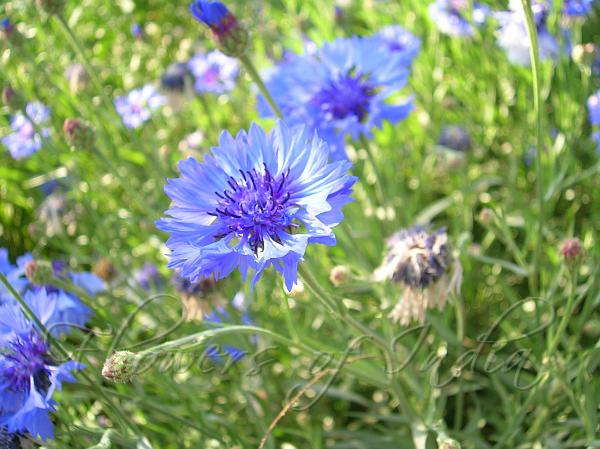|
| Cornflower |
|

|

| File size | 628766 |
| Original date | 1/22/06 4:05 PM |
| Resolution | 2048 x 1536 |
| Flash | Flash did not fire, auto |
| Focal length | 8.0mm |
| Exposure time | 1/100s |
| Aperture | 3.2 |
| Focus Distance | |
| Metering Mode | Partial |
| Camera make | NIKON |
| Camera model | E3700 |
| Sensor type |
|
|
|
Photo: Thingnam Girija |
Botanical name: Centaurea cyanus Family: Asteraceae (Sunflower family)
The attractive flowers of the cornflower are a bright celebratory blue,
distinctive enough to have given its name to a colour. The narrow grey-green
leaves, no more than five millimetres wide, grow alternatively up the stem.
The closed, emerging flower heads resemble other members of the knapweed
family to which the cornflower is closely related. In the early years of the
twentieth century, cornflowers were common in Britain and, together with red
poppies and white-flowering Mayweed, must have made a patriotic sight across
parts of the countryside.
The nickname "cornflower" comes from the fact that the plant grows wild in the
grain fields of southern Europe. When Napoleon forced Queen Louise of Prussia
from Berlin, she hid her children in a cornfield and kept them entertained and
quiet by weaving wreaths of cornflowers. One of her children, Wilheim, later
became the emperor of Germany. Remembering his mother's bravery, he made the
cornflower a national emblem of unity.
| Identification credit: Anu Venugopalan | Photographed in New Delhi |
• Is this flower misidentified? If yes,